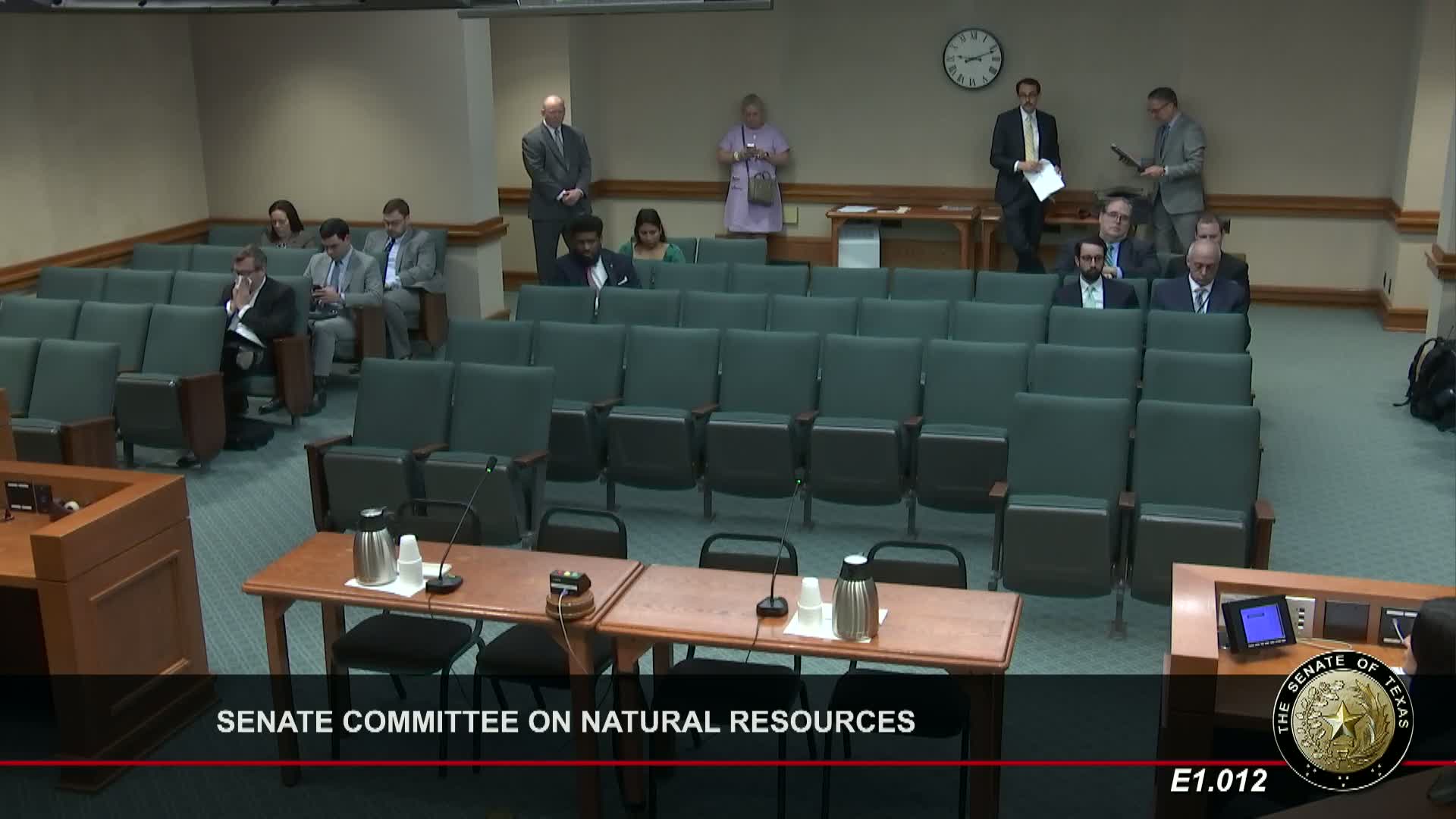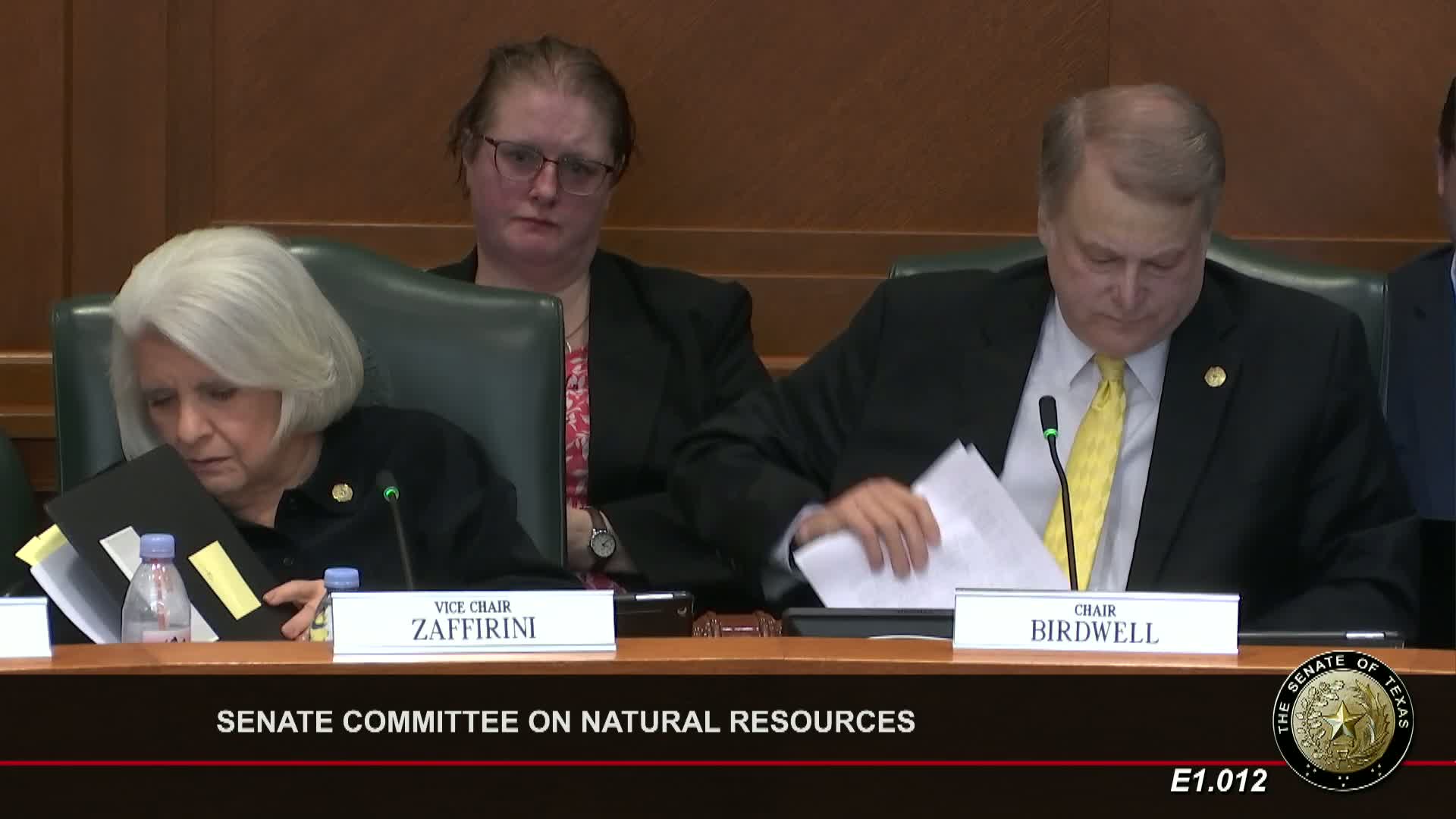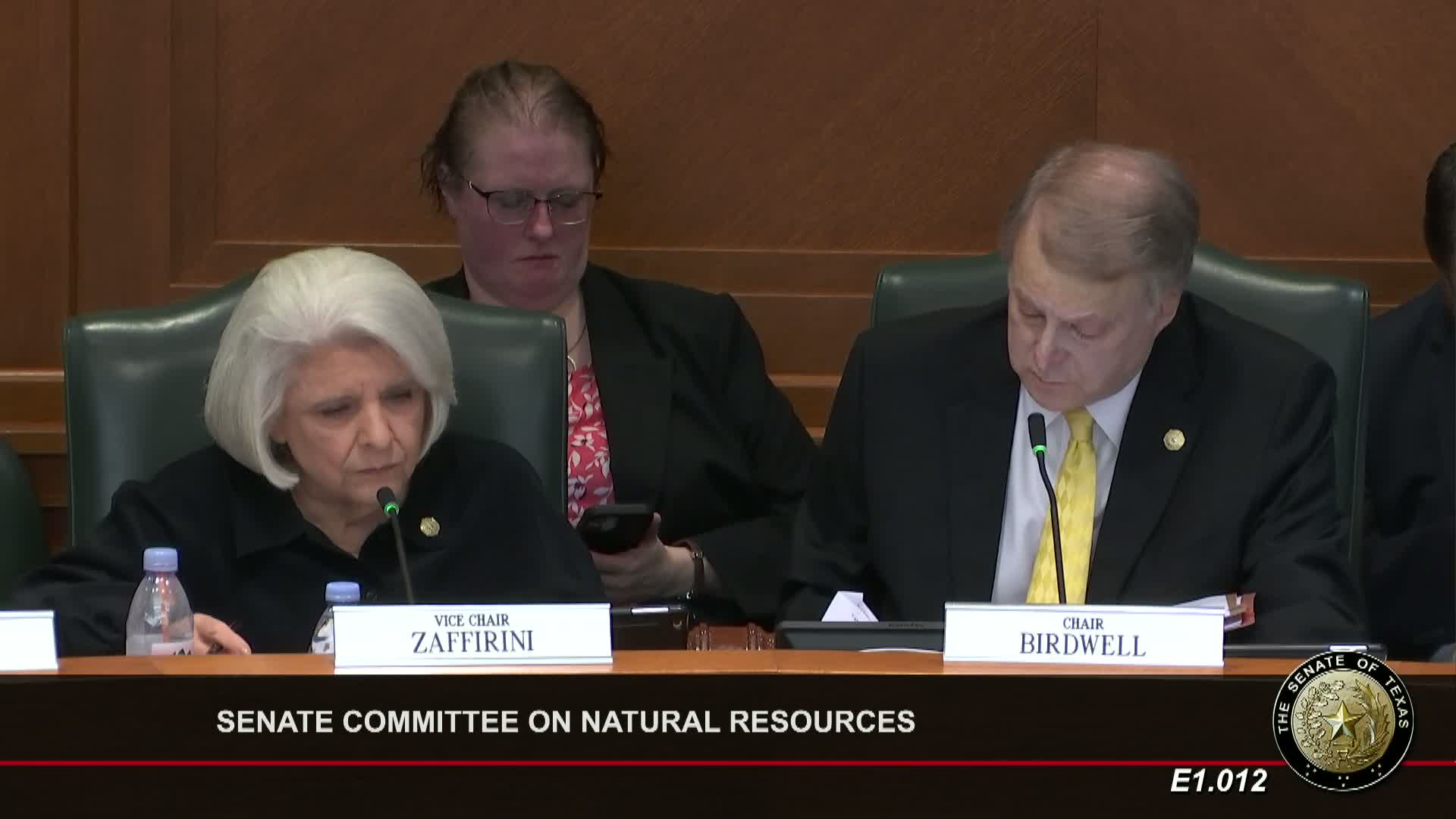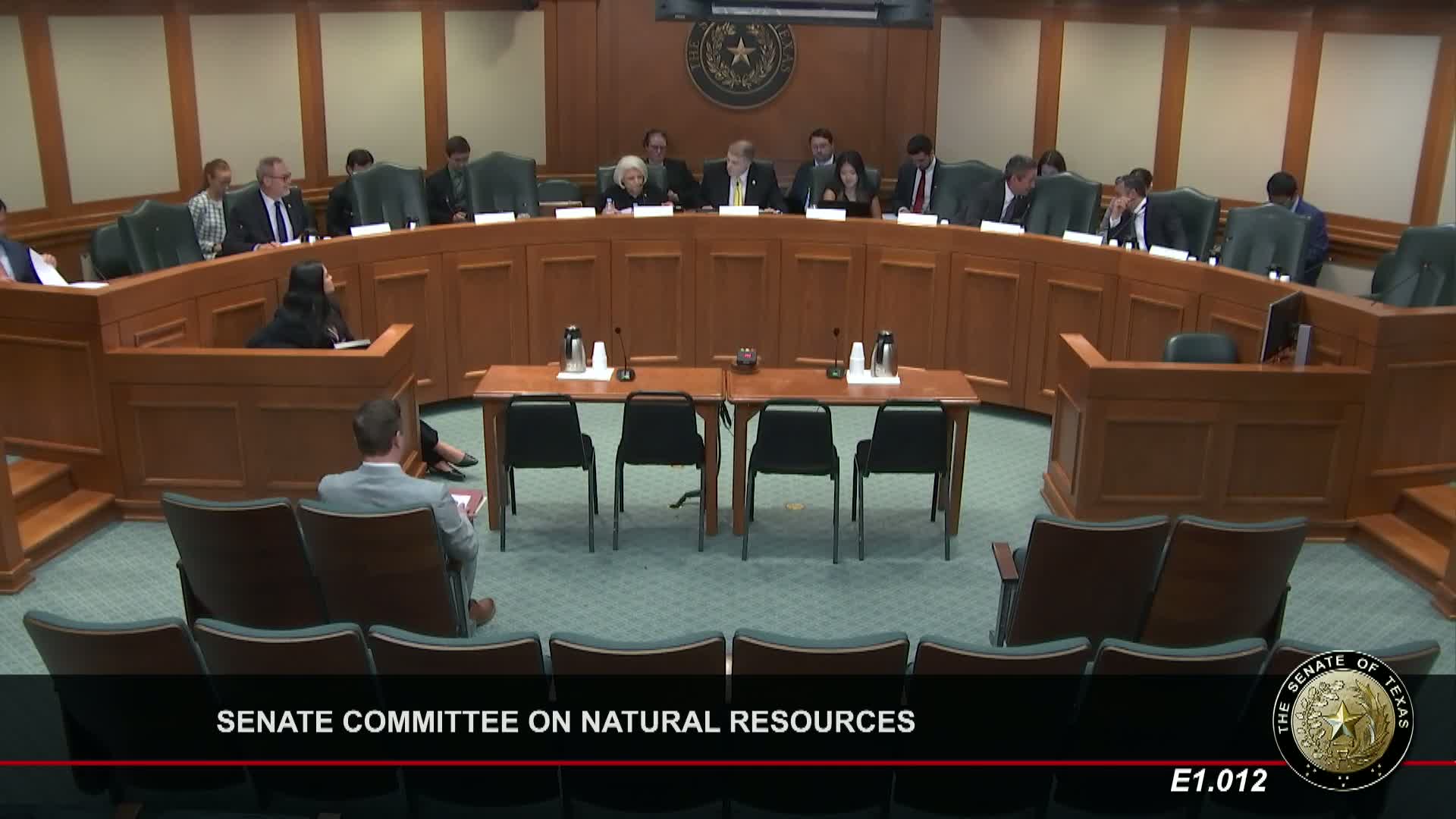Article not found
This article is no longer available. But don't worry—we've gathered other articles that discuss the same topic.

Committee adopts committee substitutes and reports several bills favorably; roll-call tallies recorded

Senate committee debates battery-disposal bill, hears recycling industry testimony, leaves measure pending

Senate committee hears Railroad Commission request to add fees for oil-and-gas waste permits; leaves bill pending

